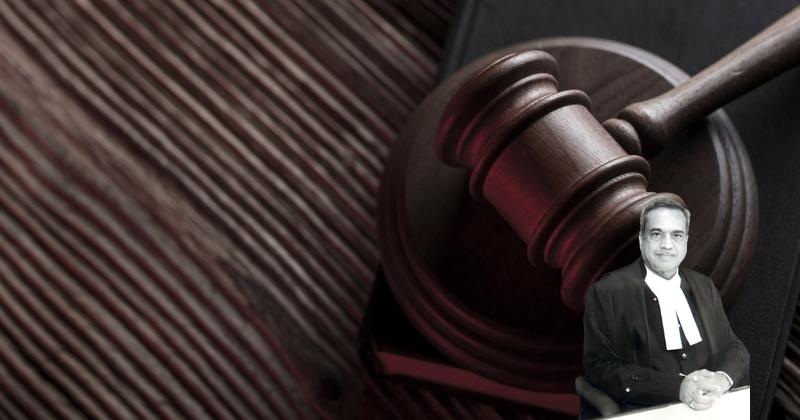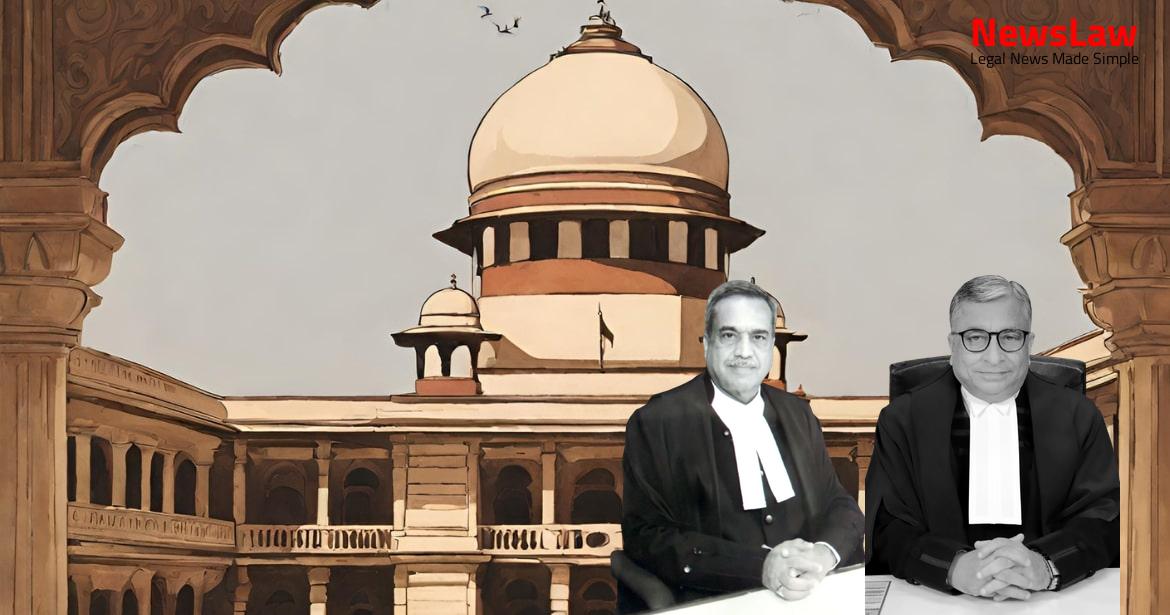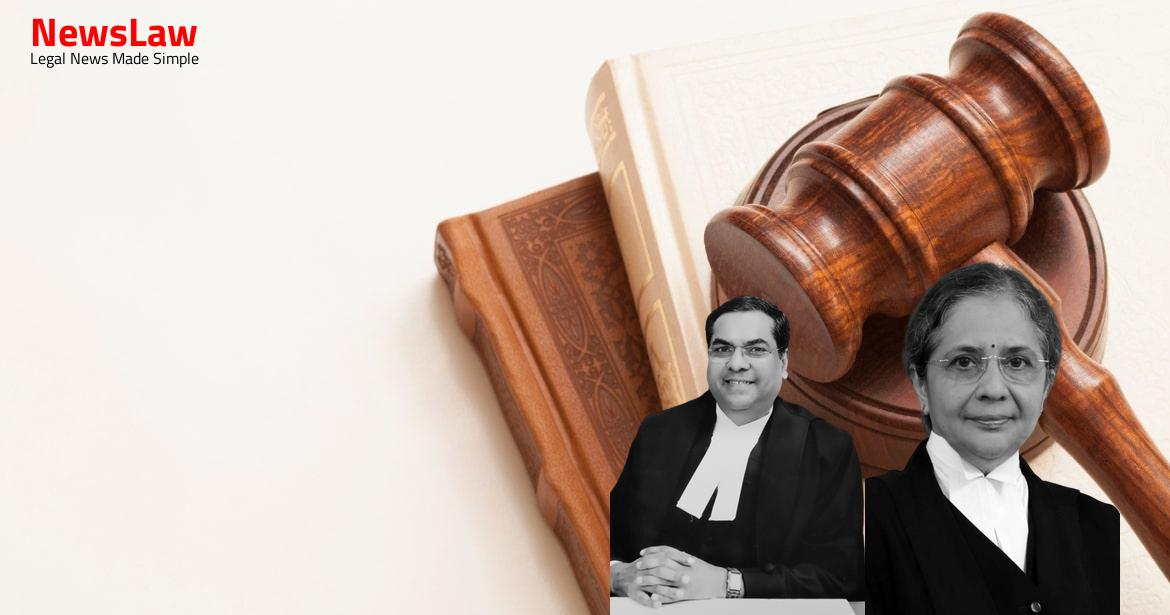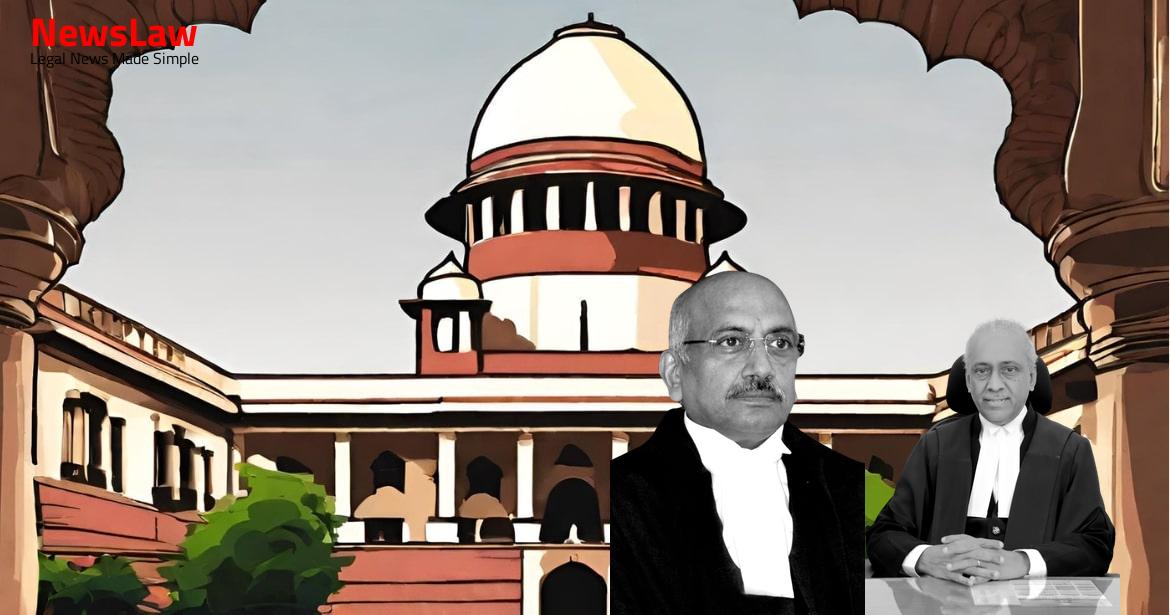Shri Sanjay Poddar, learned Senior Advocate appearing on behalf of the Government of NCT of Delhi and other learned counsel appearing on behalf of the Delhi Development Authority have vehemently submitted that while dismissing/disposing off all the respective Civil Appeals and holding and/or confirming the judgments of the respective High Courts declaring that the acquisition of the lands in question have lapsed in view of Section 24(2) of the Right to Fair Compensation and Transparency in Land Acquisition, Rehabilitation and Resettlement Act, 2013 (hereinafter referred to as the ‘2013 Act’), reliance was placed on the decision of this Court in the case of Pune Municipal Corporation v. It is the case on behalf of the applicants that the decision of this Court in the case of Pune Municipal Corporation (supra), which was relied upon while dismissing/disposing off all the respective appeals has been specifically overruled by a Constitution Bench of this Court in the case of Indore Development Authority v. Manohar Lal & Others (supra) and specifically overruling the decision in the case of Pune Municipal Corporation (supra) which was the basis to dispose of/dismiss the respective appeals, the principle of res judicata shall not be applicable on the question of law.
Also Read: https://newslaw.in/case-type/civil/acquisition-of-land-and-deemed-lapse-under-the-act-2013/
Learned counsel appearing on behalf of the respective applicants have also relied upon some of the subsequent orders passed by this Court recalling similar orders dismissing/disposing off the civil appeals in which the decision in the case of Pune Municipal Corporation (supra) was relied upon and the respective proceedings are ordered to be restored to their original file in which the effect of the subsequent judgment rendered by the Constitution Bench in the case of Indore Development Authority (supra) Pune Municipal Corporation (supra) is under consideration. Jeejeebhoy (2008), (1970) 1 SCC 613 in support of his submissions that as held by this Court that the decision on question of law where the law is altered since the earlier decision, the earlier decision will not operate as res judicata. It is submitted that therefore in view of the subsequent decision of the Constitution Bench in the case of Indore Development Authority (supra) clarifying the law and specifically overruling the decision of this Court rendered in the case of Pune Municipal Corporation (supra), there shall not be any lapse of acquisition under the provisions of the 2013 Act. It is submitted that in the aforesaid decision it is further observed and held by this Court that the words “sufficient reason” in order 47 Rule 1 CPC are wide enough to include a misconception of fact or law by a court or even an advocate. Giri, Shri Neeraj Kumar Jain, Shri Vivek Chib, learned Senior Advocates and other counsel appearing for the respective respondents.
It is further submitted that even otherwise the judgment in Indore Development Authority (supra) may be construed to be prospective in its operation and cannot reopen claims/cases which have already attained finality. Manohar Lal (supra) is concerned, the Constitution Bench was only concerned with the correctness of the law laid down in the case of Pune Municipal Corporation (supra) and Sree Balaji Nagar Residential Assn. (2021 SCC OnLine SC 610) in support of his submission that as held by this Court that mere overruling of the principles by a subsequent judgment will not dilute the binding effect of the decision inter-parties.
It is submitted that the explanation to Order 47 of the Code states that the fact that the decision on a question of law on which the judgment of the Court is based has been reversed or modified by the subsequent decision of a superior court in any other case, shall not be aground for the review of such judgment. At the outset, it is required to be noted that in all these cases, the respective Civil Appeals have been dismissed/disposed of, confirming the orders passed by the respective High Courts, relying upon the decision of this Court in the case of Pune Municipal Corporation (supra). A Constitution Bench of this Court in the case of Indore Development Authority v. Manohar Lal (supra) thereafter has specifically overruled the decision in the case of Pune Municipal Corporation (supra). Therefore, that decision too cannot prevail, in the light of the discussion in the present judgment.” Thus, the Constitution Bench of this Court in the aforesaid decision has not only observed that the decision rendered in Pune Municipal Corporation (supra) is overruled but has also specifically observed that all other decisions in which Pune Municipal Corporation (supra) has been followed, are also overruled. None of the submissions/decisions relied upon on behalf of the respective respondents shall be of any assistance to the respondents, though there cannot be any dispute with respect to the proposition of law laid down in the relied upon judgments/decisions on the review jurisdiction, more particularly, in view of the observations made in para 217 in the earlier decision of this Court in the case of Indore Development Authority v.
Now so far as the submission on behalf of the respective respondents that the case does not fall under Order 47 CPC and that the subsequent overruling cannot be a ground to review the earlier order(s) is concerned, at the outset, it is required to be noted that here is a peculiar case where the earlier decision in the case of Pune Municipal Corporation (supra), upon which reliance has been placed earlier, was itself doubted in the subsequent decision in the case of Indore Development Authority (supra) and that the matter was referred to the Constitution Bench and thereafter the Constitution Bench has declared the law as above, more particularly paras 365 and 366 of the judgment in the case of Indore Development Authority (supra).
Therefore, in the facts and circumstances of the case, these are the cases where the review applications are to be allowed and the appropriate public authorities are to be given an opportunity to put forward their case afresh, which shall be in the larger public interest. The orders passed in the respective Civil Appeals are hereby recalled and the respective Civil Appeals are hereby ordered to be restored to their original file. In these batch of cases, the issue revolves around in my view the very maintainability of these review petitions both on the ground of delay and on a consideration of Article 137 of the Constitution of India as well as Order XLVII Rule 1 of the Supreme Court Rules, 2013 (for short, “S.C. Rules – 2013”) and Order XLVII Rule 1 of the Code of Civil Procedure, 1908 (‘CPC’ for short). The aforesaid provisions are respectively extracted as under for immediate reference: “Article 137 of the Constitution of India: ‘ 137. — (1) Any person considering himself aggrieved — by a decree or order from which an appeal is allowed, but from which no appeal has been preferred, by a decree or order from which no appeal is allowed, or by a decision on a reference from a Court of Small Causes, and who, from the discovery of new and important matter or evidence which, after the exercise of due diligence was not within his knowledge or could not be produced by him at the time when the decree was passed or order made, or on account of some mistake or error apparent on the face of the record, or for any other sufficient reason, desires to obtain a review of the decree passed or order made against him, may apply for a review of judgment to the Court which passed the decree or made the order.
Act, 1894”) was a pre-Independence legislation applicable to acquisition of land on the principle of eminent domain. The same was repealed and substituted by the Right to Fair Compensation and Transparency in Land Acquisition, Rehabilitation and Resettlement Act, 2013 (‘L.A. –(1) Notwithstanding anything contained in this Act, in any case of land acquisition proceedings initiated under the Land Acquisition Act, 1894,— (a) where no award under section 11 of the said Land Acquisition Act has been made, then, all provisions of this Act relating to the determination of compensation shall apply; or (b) where an award under said section 11 has been made, then such proceedings shall continue under the provisions of the said Land Acquisition Act, as if the said Act has not been repealed. (2) Notwithstanding anything contained in sub- section (1), in case of land acquisition proceedings initiated under the Land Acquisition Act, 1894 (1 of 1894), where an award under the said section 11 has been made five years or more prior to the commencement of this Act but the physical possession of the land has not been taken or the compensation has not been paid the said proceedings shall be deemed to have lapsed and the appropriate Government, if it so chooses, shall initiate the proceedings of such land acquisition afresh in accordance with the provisions of this Act: Provided that where an award has been made and compensation in respect of a majority of land holdings has not been deposited in the account of the beneficiaries, then, all beneficiaries specified in the notification for acquisition under section 4 of the said Land Acquisition Act, shall be entitled to compensation in accordance with the provisions of this Act.”
Act, 2013 was a subject matter of consideration and interpretation in the case of Pune Municipal Corporation vs Harakchand Misirimal Solanki (2014) 3 SCC 183 (Pune Municipal Corporation) and Indore Development Authority vs Manoharlal (2020) 8 SCC 129 (Indore Development Authority). There were other cases also touching upon the same controversy which were referred to a Larger Bench and ultimately, in Indore Development Authority vs Manoharlal, a five-Judge Bench was constituted by the Hon’ble Chief Justice of India, which, after hearing the learned counsel for the parties, framed the following questions for consideration: “4.1. Whether non-deposit of compensation in court under Section 31(2) of the 1894 Act results into lapse of acquisition under Section 24(2) of the 2013 Act. After analysing Section 24(1)(a) and Section 24 (1)(b) of the L.A. Under the provisions of Section 24(1)(a) in case the award is not made as on 1-1-2014, the date of commencement of the 2013 Act, there is no lapse of proceedings. The deemed lapse of land acquisition proceedings under Section 24(2) of the 2013 Act takes place where due to inaction of authorities for five years or more prior to commencement of the said Act, the possession of land has not been taken nor compensation has been paid.
The consequence of non-deposit is provided in the proviso to Section 24(2) in case it has not been deposited with respect to majority of landholdings then all beneficiaries (landowners) as on the date of notification for land acquisition under Section 4 of the 1894 Act shall be entitled to compensation in accordance with the provisions of the 2013 Act. Once award has been passed on taking possession under Section 16 of the 1894 Act, the land vests in State there is no divesting provided under Section 24(2) of the 2013 Act, as once possession has been taken there is no lapse under Section 24(2). Section 24(2) of the 2013 Act does not give rise to new cause of action to question the legality of concluded proceedings of land acquisition. The object and purpose of filing these review petitions is to seek review of the judgment impugned in the review petitions and for re- hearing of the Special Leave Petitions or the Civil Appeals, as the case may be, which were disposed of in terms of Pune Municipal Corporation, in light of the latest pronouncement of this Court in Indore Development Authority. According to Sri Sanjay Poddar, learned senior counsel and other learned counsel appearing for the review petitioners, on an interpretation of para 365 of Indore Development Authority, it is clear that not only the judgment in Pune Municipal Corporation is overruled but all other judgments following the said decision also stand overruled. In other words, it is their contention that despite what has been stated in paragraph 365 of Indore Development Authority, in view of the bar contained in the Explanation to Order XLVII Rule 1 CPC, the review petitions are not maintainable and the review petitions have to be dismissed in limine.
This implies that the said judgment cannot be cited as a precedent in future in view of the subsequent law being laid down by the Larger Bench in Indore Development Authority by overruling the judgment in Pune Municipal Corporation. Learned senior counsel, Sri Shyam Divan, appearing for one of the respondents, placed reliance on the two judgments of this Court: (i) Dr. Puttuswamy vs Union of India (2019) 1 SCC 1 (Aadhaar – 5 J.), it was observed that there was no case for review of the said judgment. In other words, the point for consideration is, whether, the judgment passed in Pune Municipal Corporation and all other judgments following the said dictum, which have been overruled, could be reviewed by entertaining these review petitions and the said orders be recalled and the said cases be reheard and decided in light of Indore Development Authority. The pertinent question involved in this case is, whether, the judgment in Pune Municipal Corporation having been overruled and all other judgments following Pune Municipal Corporation having been overruled in Indore Development Authority, would call for review of all those judgments despite having attained finality between the parties. We make it clear that in case no fresh acquisition proceedings are initiated within the said period of one year from today by issuing a Notification under Section 11 of the Act, the appellants, if in possession, shall return the physical possession of the land to the original land owner. A decision of the court is its judgment; the opinion is the reasons given for that judgment, or the expression of the views of the Judge.” This Court while considering the difference between the two expressions, namely, “decision” and “opinion” or view of law stated that, “ it is necessary to bear in mind that the principles in regard to the highest Court departing from its binding precedent are different from the grounds on which a final judgment between the parties can be reconsidered.”
It is at that stage the maintainability of the review petition would also have to be considered such as if there is a bar to the very maintainability of the review petition having regard to the scope to Order XLVII Rule 1 CPC. However, the power of the Supreme Court of India to review its judgment or order is subject to (i) the provisions of any law made by the Parliament, or (ii) any Rule made under Article 145 of the Constitution of India. Order XLVII Rule 1 CPC states that an aggrieved person – i) due to discovery of new and important matter or evidence which, after exercise of due diligence was not within the knowledge of the person aggrieved or the person seeking review could not be produced by him at the time when the decree was passed or order made, or ii) due to a mistake or error apparent on the face of the record, or iii) on account of any other sufficient reason, may seek review of a judgment or order of this Court.
On a consideration of Order XLVII Rule 1 CPC, it is noted that there are three main grounds referred to above on which a review of a decree or order could be sought by an aggrieved person. It was further contended that having regard to paragraph 365 of the judgment in Indore Development Authority, the dictum in Pune Municipal Corporation as well as all decisions following Pune Municipal Corporation have been expressly overruled. Applying the Explanation to the facts of the present case, it was contended that in Indore Development Authority, the judgment in Pune Municipal Corporation was overruled on a pure question of law and further, all other judgments following Pune Municipal Corporation also stood overruled.
Also Read: https://newslaw.in/case-type/civil/taxation-of-engineering-design-drawings-goods-or-services/
This Court in Moran Mar Basselios Catholicos vs Most Rev. Although, the expression “for any other sufficient reason” in Order XLVII Rule 1 CPC is wide enough to take within its scope and ambit many circumstances or situations which do not fall in the earlier part of the Order XLVII Rule 1 CPC which are the two grounds (i) and (ii) referred to above, in my view, the Explanation to the said provision carves out an exception to the expression “for any other sufficient reason” as a ground for review of a judgment in ground (iii). In other words, if, on a question of law, a decision of a Court is reversed by a subsequent decision of a superior Court (Larger Bench in the instant case) and the same is reopened on the basis of the said subsequent decision there would be no finality of judgments of the Court even between the parties thereto.
This would mean that if, in the mind of a Court there is a sufficient reason for the review of a judgment, it cannot be on the ground/reason covered in the Explanation to Order XLVII Rule 1 CPC. Sometimes an Explanation is added to clarify a doubtful point of law as in the instant case the Explanation to Order XLVII Rule 1 CPC has been inserted by the amendment made in the year 1976. The Explanation in the instant case being in the nature of a proviso is a qualifying or excepting provision to what is stated in Order XLVII Rule 1 CPC which state the grounds for seeking a review. These maxims would indicate that there must be an end to litigation otherwise the rights of persons would be in an endless confusion and justice would suffer. The Explanation to Order XLVII Rule 1 CPC states that the fact that a decision on a question of law on which the judgment of the Court is based has been reversed or modified by the subsequent decision of a superior Court in any other case, shall not be a ground for the review of such judgment. Similarly, by an erroneous decision if the court assumes jurisdiction which it does not possess under the statute, the question cannot operate as res judicata between the parties, whether the cause of action in the subsequent litigation is the same or otherwise, because if those decisions are considered as conclusive, it will assume the status of a special rule of law applicable to the parties relating to the jurisdiction of the court in derogation of the rule declared by the Legislature.
A decision on an issue of law will be a res judicata in a subsequent proceeding between the same parties, if the cause of action of the subsequent proceeding is the same as in the previous proceeding, but not when the cause of action is different, nor when the law has since the earlier decision been altered by a competent authority, nor when the decision relates to the jurisdiction of the Court to try the earlier proceeding, nor when the earlier decision declares valid a transaction which is prohibited by law. Therefore, if a subsequent proceeding is initiated between the parties in these cases, then the decision arrived at in terms of the impugned judgment in these review petitions would be binding on the parties. Therefore, the judgment in Indore Development Authority being a subsequent decision cannot give rise to review and recall of the decision in Pune Municipal Corporation as well as other judgments following the aforesaid case, on the basis that judgment in Pune Municipal Corporation has been overruled in the subsequent case, namely, Indore Development Authority.
Since the law on the date of the second declaratory decree was contrary to the earlier declaration of law made by this Court, the earlier decree in the first suit would not operate as res judicata even between the same parties when the second suit on a different cause of action between the same parties is being considered. In the aforesaid case, the second suit was filed for possession of the suit properties on the basis of a declaratory decree obtained earlier in the first suit which was not found to be a lawful decree as per the law prevailing at the time when the second suit was considered. It is necessary to emphasise that these review petitions have been filed before this Court to review the judgments/orders passed by this Court on the basis of the judgment in Pune Municipal Corporation which has been overruled by a subsequent judgment in Indore Development Authority. Mar Poulose Athanasius (supra), dealing with the limitations in the application of review and it was observed that the expression “any other sufficient reason” must mean “a reason sufficient on grounds, at least analogous to those specified in the rule.” In Netaji Cricket Club (supra), this Court recognised that there was a mistake on the part of this Court which would include a mistake in the understanding of the nature of an undertaking given to this Court and therefore, the review application was entertained by accepting the mistake in the nature and purport of the undertaking given before this Court. It was observed that while exercising its review jurisdiction, the Court can take into consideration a subsequent event for the purpose of rectifying its own mistake. A few judgments of this Court could be referred to at this stage in support of the view that I wish to take in this case: In Haridas Das vs Usha Rani Banik (2006) 4 SCC 78, it has been observed that one of the parameters prescribed in Order XLVII Rule 1 CPC for allowing the review petition for rehearing the case is “on account of some mistake or error apparent on the face of the record or for any other sufficient reason”. AIR 1964 SC 1372: (1964) 5 SCR 174, it has been observed that there is a distinction which is real between a mere erroneous decision and a decision which could be characterised as vitiated by “error apparent”. Nayyar Khalil (2000) 9 SCC 252, wherein it was observed that if an order following a Three-Judge Bench decision is passed and at that time the Three-Judge Bench decision had not been upset, even in the future or later if the Constitution Bench takes a contrary view, it would be a subsequent judgment which cannot be a ground for review in view of the Explanation to Order XLVII Rule 1 CPC. e) In Usha Bharti vs State of Uttar Pradesh (2014) 7 SCC 663, it was held that the Supreme Court, in exercise of its power of review may in an appropriate case reopen the case and rehear the entire matter but while doing so the Court must remain conscious of the provisions contained in Order XLVII Rule 1 CPC as well as the Rules framed by the Supreme Court. In the circumstances, it was held that Life Insurance Corporation which was a party in that case was liable to make the payment of cash bonus for the year 1975-1976 to its Class III and IV employees in accordance with the said judgment of the Calcutta High Court as it was not absolved of the obligations imposed by the said judgment despite the Parliament passing an Act subsequent thereto on the ground that the judgment of the Calcutta High Court was binding on the parties thereto. (c) Further, in Neelima Srivastava vs State of Uttar Pradesh (2021)
Case Title: GOVT. OF NCT OF DELHI THR SECRETARY, LAND AND BUILDING DEPARTMENT . Vs. M/S. K.L. RATHI STEELS LTD. . (2023 INSC 259)
Case Number: MA-000414 / 2023



